
Paralympic Medalist Blake Leeper Runs at CU
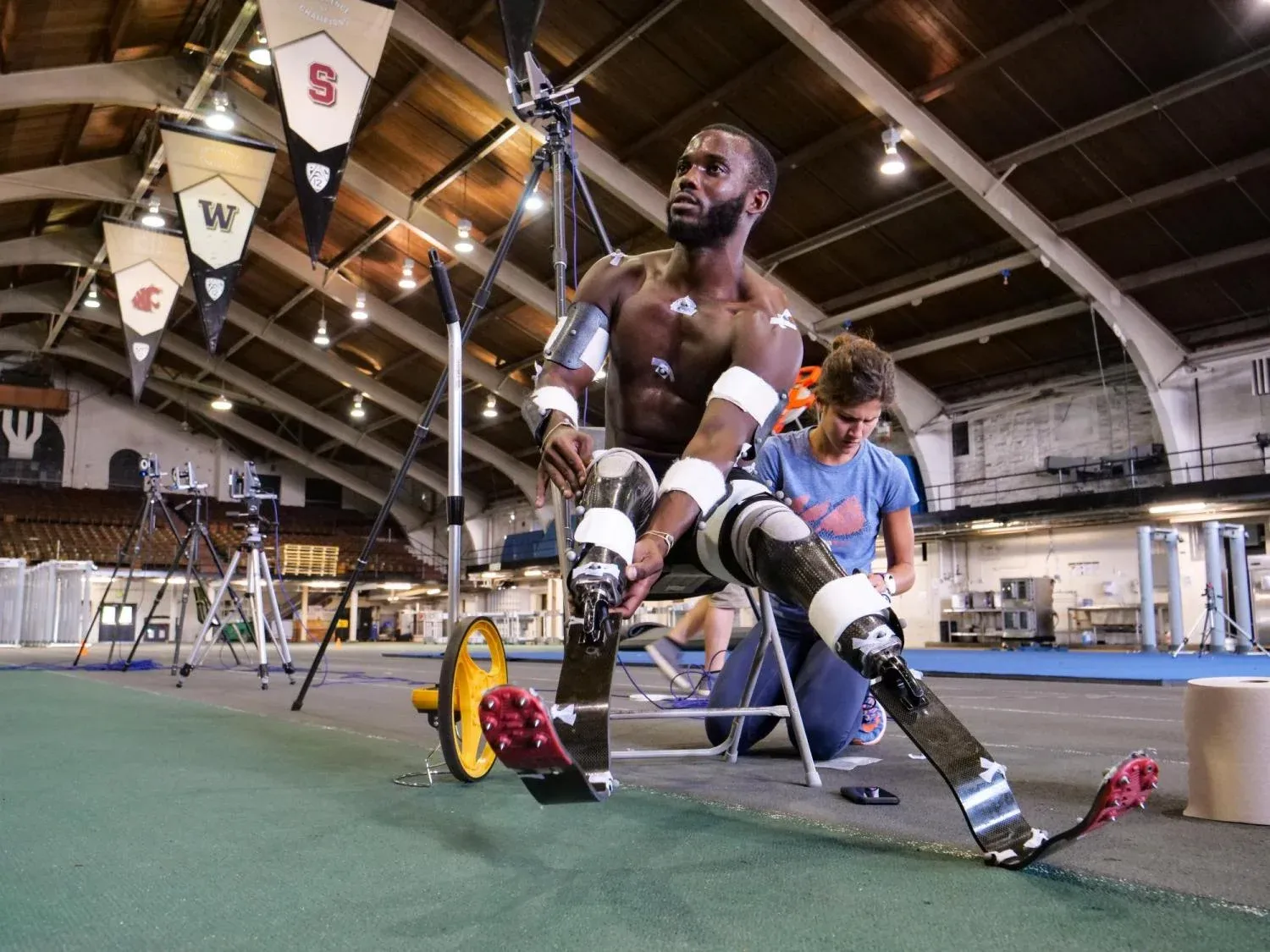
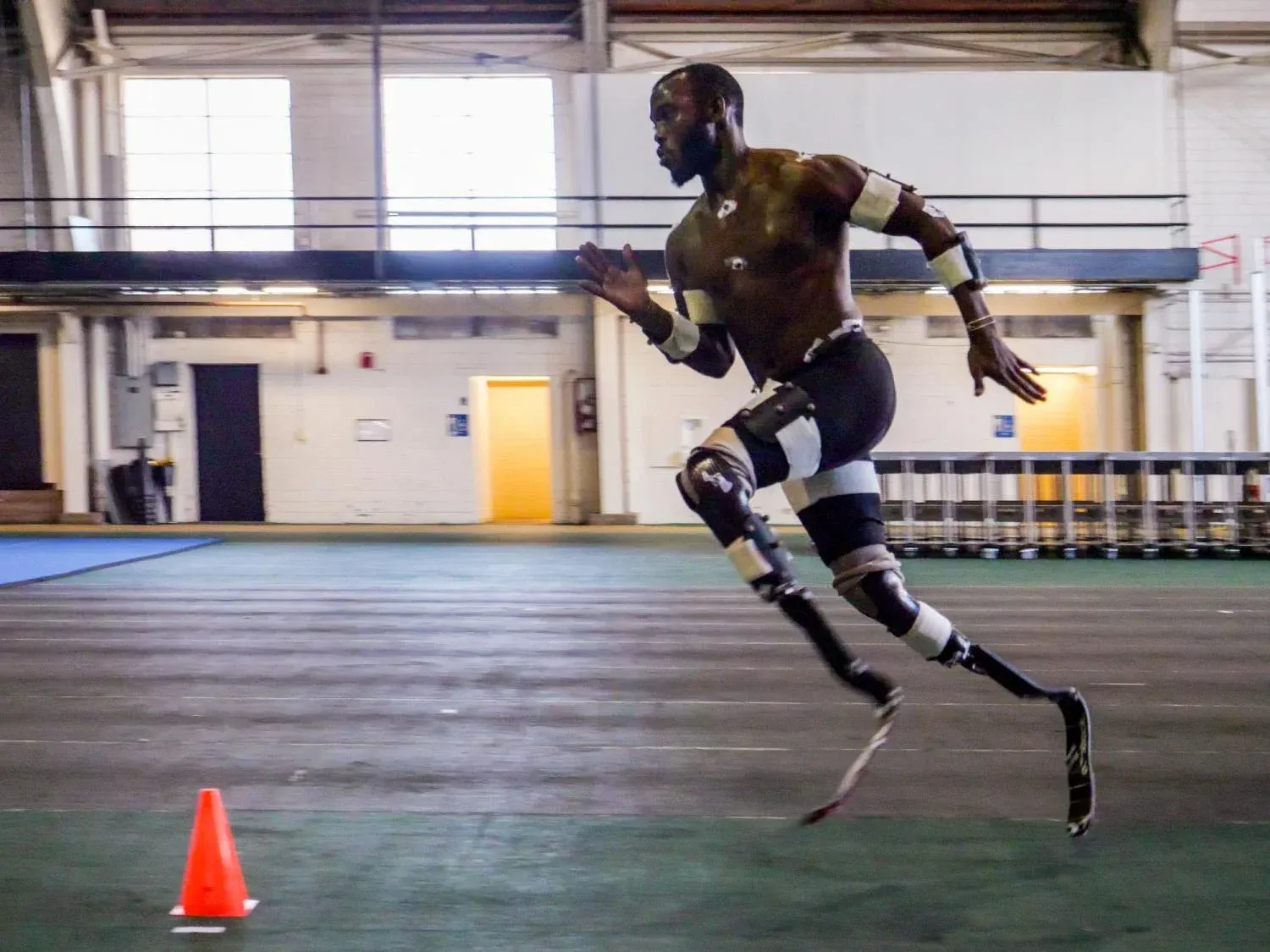
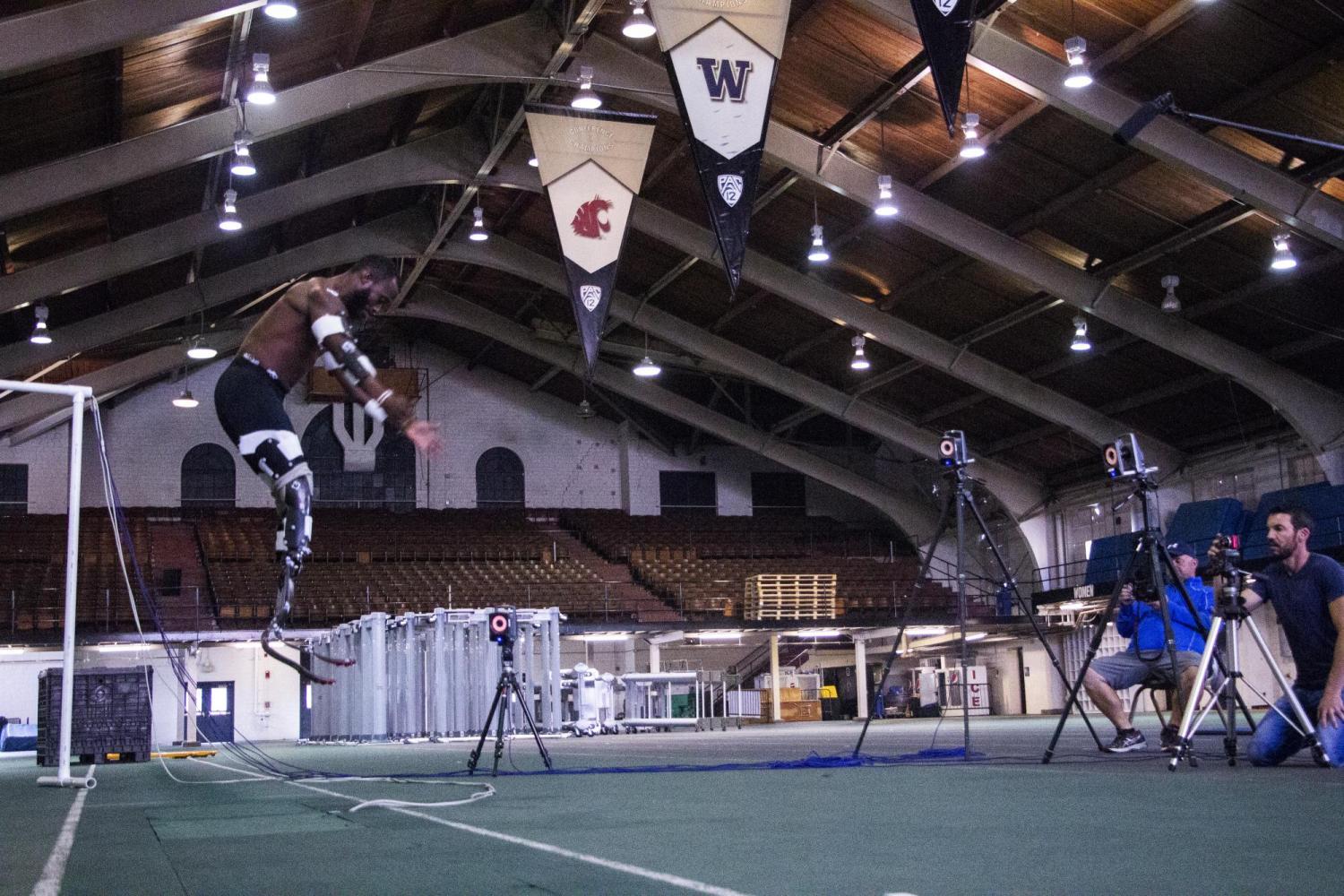
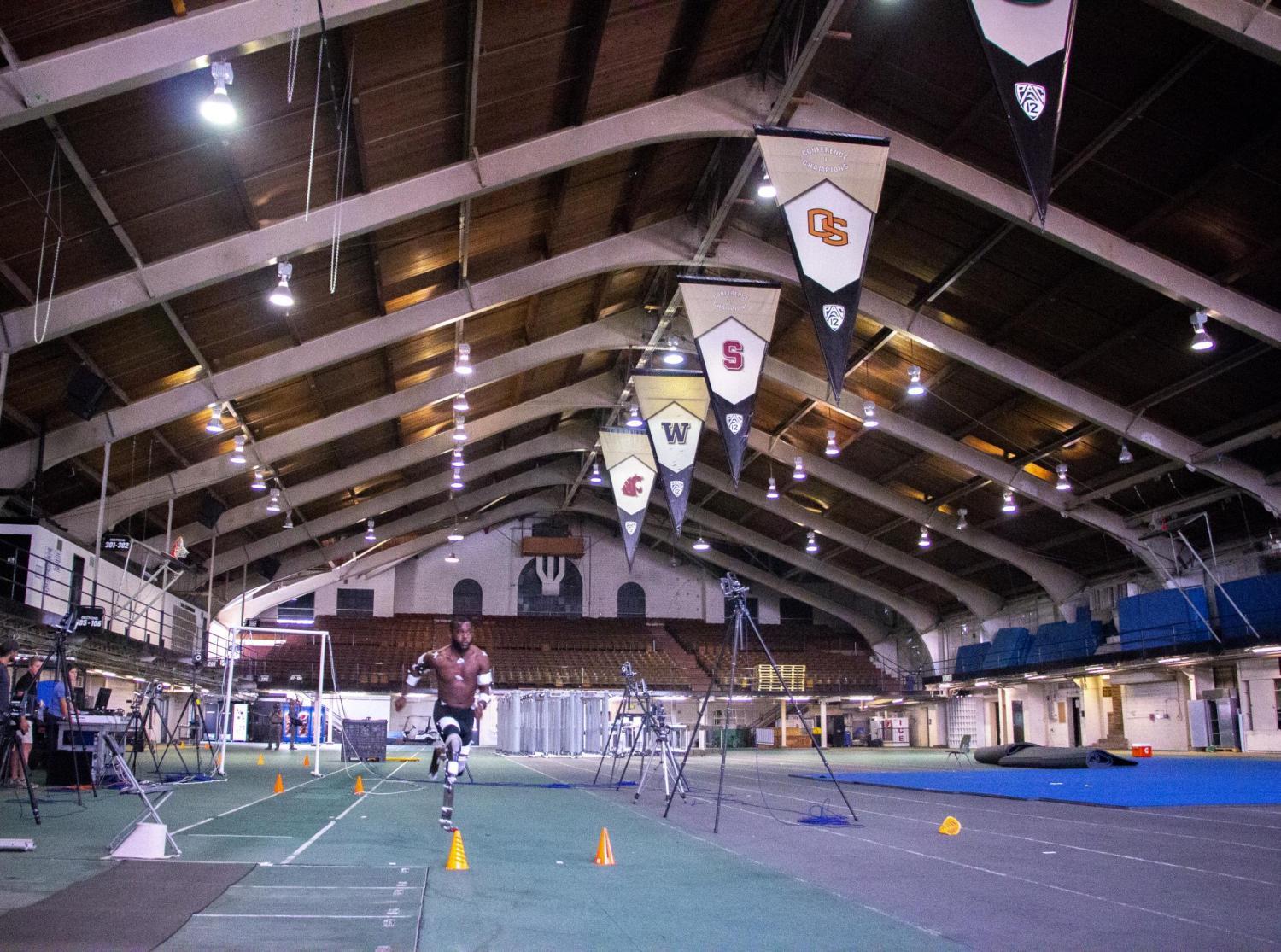
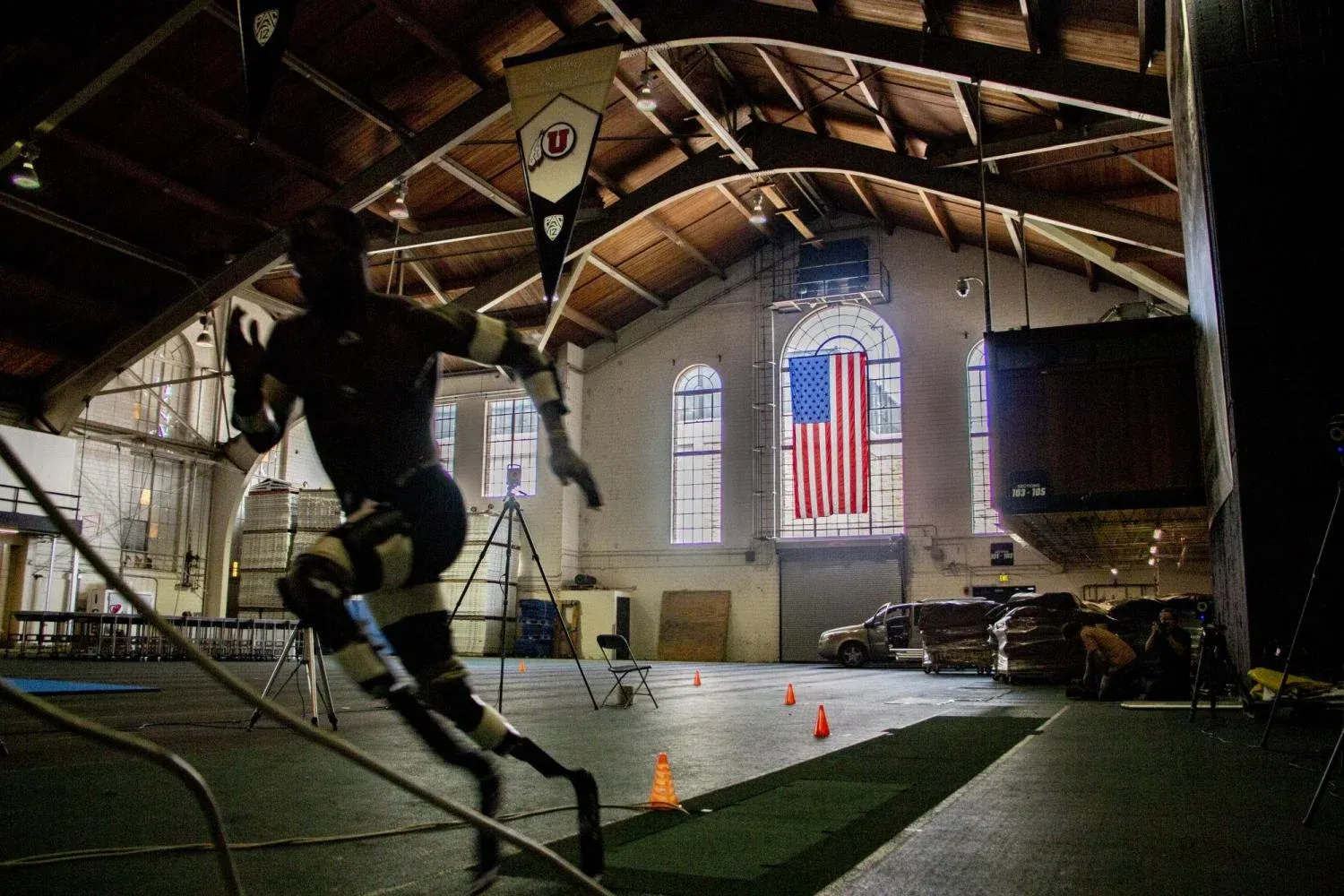
Eight-time Paralympic medalist and double amputee Blake Leeper aims to run in the 2020 Olympics, competing against athletes with two natural legs. His eligibility could hinge in part on findings by CU Boulder researchers.
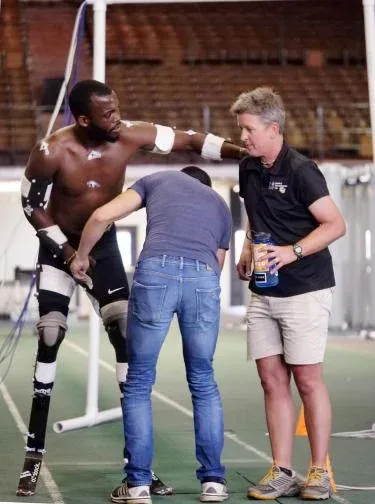
Her current challenge? Proving whether or not the prosthetics give Leeper an unfair advantage.
During his visit to CU's Balch Fieldhouse, Grabowski and her team gathered data they'll need to make the assessment. Their conclusions could influence whether sporting authorities deem Leeper eligible to participate in the 2019 World Championships and the 2020 Olympic Games in Tokyo.
Leeper, 28, was born without the lower portion of his legs. At a race in Prague in June, he ran 400 meters in 44.42 seconds, among the fastest times by any runner this year.
Read more about Grabowski's work in the 2018 Summer issue of the Coloradan.
Photos by Glenn Asakawa/University of Colorado and Amanda Clark
Leeper, who ranks fourth in the U.S. in the 400 meter run, traveled to campus Aug. 19 to meet with CU's Alena Grabowski (Kines’98; PhD’07), assistant professor of integrated physiology and director of the Applied Biomechanics Laboratory. Grabowski has worked with some of the world's most famous amputee-athletes, including former South African sprinter Oscar Pistorius, in their attempts to prove they should be allowed to compete alongside athletes with natural legs.
Her current challenge? Proving whether or not the prosthetics give Leeper an unfair advantage.
During his visit to CU's Balch Fieldhouse, Grabowski and her team gathered data they'll need to make the assessment. Their conclusions could influence whether sporting authorities deem Leeper eligible to participate in the 2019 World Championships and the 2020 Olympic Games in Tokyo.
Leeper, 28, was born without the lower portion of his legs. At a race in Prague in June, he ran 400 meters in 44.42 seconds, among the fastest times by any runner this year.
Read more about Grabowski's work in the 2018 Summer issue of the Coloradan.
Photos by Glenn Asakawa/University of Colorado and Amanda Clark

